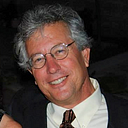SAQs for APUSH Topic 4.7 — Expanding Democracy
3 min readApr 15, 2021
Three short answer questions designed to help students review for the annual exam and that relate to the rise in political participation that occurred as states extended voting rights to all adult white men between 1800 and 1848.
- In 1800, the United States began to develop a modern democracy. In a modern democracy, political parties debate, the “common man” gets to vote, the courts have the power of judicial review, and the president has a cabinet (aka advisors). What is meant by the term “common man?” Name a president who was elected between 1800–1848 after having received a large number of votes from the common man? What is the power of judicial review? What US Supreme Court case decided between 1800–1848 granted the judicial branch the power of judicial review. Name one argument in favor of and one argument in opposition to judicial review.
- Between 1800–1848, the nation transformed to a more participatory democracy, this achieved by expanding suffrage from a system based on property ownership to one based on voting by all adult white men. This expansion of democracy has been dubbed Jacksonian Democracy, as the election of Andrew Jackson in 1828 became symbolic of the new “politics of the common man.” The United States’ transformation into a republic where nearly all adult white men could vote was incredibly progressive for its time. The extent of American democracy and the enthusiasm with which Americans participated in elections amazed European observers. Nowhere else in the world could such a large proportion of the population exercise the franchise. And exercise it they did. In 1840, what % of eligible voters turned out for the presidential election?
- Between 1800–1848, the nation transformed to a more participatory democracy, this accompanied by the growth of political parties. The first two political parties consisted of the Federalist Party and the Democratic-Republican Party or the Anti-Federalists. Which of these two supported the ratification of the Constitution? Which opposed the powerful central government that the Constitution established when it took effect in 1789. The Democratic-Republicans supported something called “strict construction as opposed “loose constructin”? What’s meant by the phrase “a strict construction of the constitution? Which of the two parties favored planters and farmers? Appealed to the elites as opposed to the common man?
